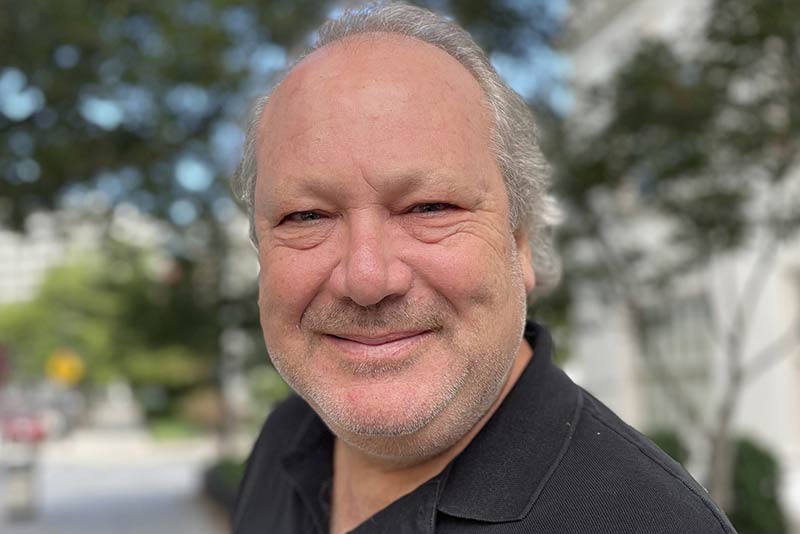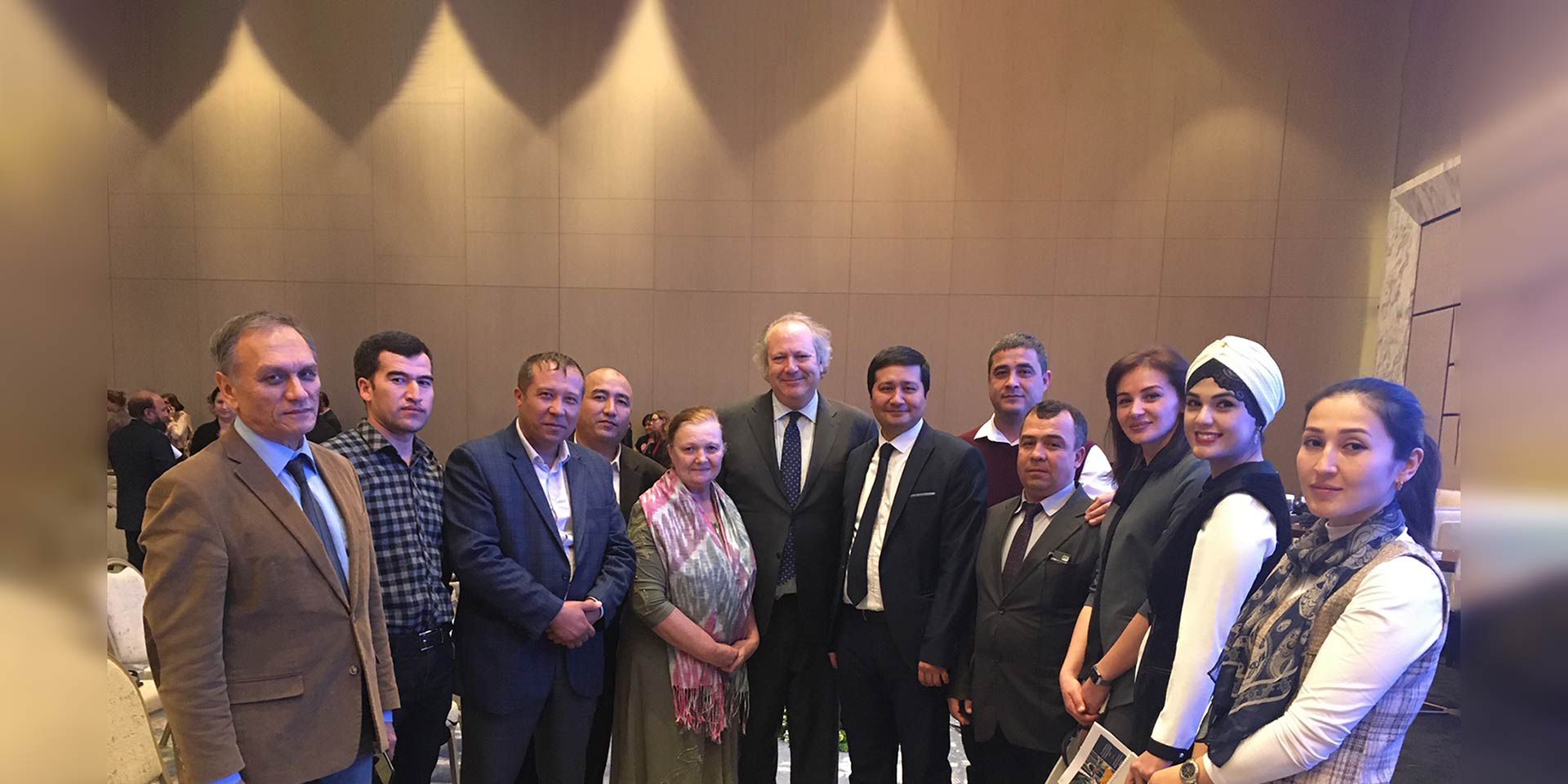By John Donnelly
Bennett Freeman has often been at the nexus of thorny foreign policy and corporate responsibility issues—creating ethical compliance standards for defense procurement, developing human rights and anti-corruption standards for the extractive sectors, and, most recently, as one of the leaders in an effort to end forced labor in Central Asian cotton fields. Freeman—a former senior U.S. State Department official in the Clinton administration and a longtime consultant to governments, NGOs, and the private sector—believes that these disparate efforts over his long career are linked by a common approach to solving seemingly intractable problems.
It starts, he said, with listening and understanding others’ perspectives—and finding common ground around common interests. In a wide-ranging interview with IFC Insights, he shared his thoughts on developing partnerships, including how one group of unlikely partners reminded him of the intergalactic bar scene in Star Wars. This interview was condensed and edited for clarity.
Q: Can you talk about any partnerships early in your career that were formative and that you remember well today?
A: I've had a passion for activism since a very early age growing up in San Francisco in the ‘60s and ‘70s that led to a real commitment to pursue a career in political change and social justice. Most formative, at the beginning of my career, was my experience in a U.S. presidential campaign for three years. It began with half-a-dozen people working in the back of a law office for a presidential candidate (former Vice President Walter Mondale), who won the Democratic Party nomination for the Presidency of the United States but fell – by just 49 states!—short of victory in the general election. I learned through those years the value of listening to other people, not just political professionals, but especially to voters, to ordinary people. It was working together in a campaign and really appreciating the value of everyone's perspective and everyone's contribution, however small, toward a large goal.
Q: What about partnerships involving the private sector?
A: I spent eight years, from the mid-1980s to the early 1990s, working in the corporate headquarters of one of the largest and most powerful corporations in the world, General Electric. I came to GE as a 27-year-old kid to be a policy advisor, speechwriter, and sort of corporate responsibility gadfly. And I think that whatever I've done the last couple of decades in trying to find common ground, reach consensus, set standards, and develop partnerships, really goes back to the lessons that I learned at GE as a liberal kid in a pretty conservative environment. It was about listening, learning, finding points of alignment where possible, picking one’s spots, not engaging in every fight.
I helped develop and draft in 1986 what became the ethical procurement standard for the U.S. defense industry. I took the lead on behalf of then-CEO Jack Welch in developing a partnership that was built around ethical standards of values and compliance processes for the entire U.S. defense industry. I learned a lot of lessons about how to work with people with greater expertise than I certainly had, but nonetheless also contribute my own values. I remember drafting those six principles, which became the Defense Industry Initiative on Business Ethics and Conduct, on the back of a beer napkin on the shuttle between Washington and New York.
Q: Do you still have the napkin?
A: I don't. God knows where that went. But the beer made the drafting easier.
Q: How do you bring together groups that would seem unlikely partners?
A: The most pivotal experience in my career was conceiving and leading an initiative in 1999 and 2000 when I was serving as the U.S. Deputy Assistant Secretary of State for Democracy, Human Rights and Labor. We were able to bring together governments, the U.S.- and U.K.-based oil and mining companies, and major human rights NGOs, including Amnesty International and Human Rights Watch, to address the challenges that oil and mining companies faced trying to operate in conflict zones–often in impoverished communities where human rights abuses were rampant.
We had several months of intense dialogue and then several more months of intense drafting and negotiating before we reached consensus around the Voluntary Principles on Security and Human Rights. But the key thing was the willingness of people from disparate backgrounds to come together to try to find common interests.
I felt at the time that we were running a sequel to the famous Star Wars bar scene from 1977, the first Star Wars movie. That was the scene where creatures from not just different solar systems, but different galaxies, gathered together not speaking each other's languages but sharing drinks in an intergalactic bar. I felt the same. Here we had two governments, people from really tough-minded companies, and seriously committed activists, all trying to find common ground around human rights. And we got there because we listened to each other enough to understand that while we had maybe different values, and certainly different perspectives, that there was a degree of common interest to reach agreement around a breakthrough reciprocal proposition: that the companies had legitimate security needs but that their security arrangements must protect human rights.
Q: You are a co-founder of the Cotton Campaign, which was started in 2007 and continues to this day with a goal of eliminating forced labor from cotton fields in Central Asia. The campaign isn’t over, but what’s your analysis now on the partnerships developed among the groups?
A: The Cotton Campaign is an unusual, even unique partnership coalition among major global apparel brands, responsible investors, civil society, labor and human rights advocates and NGOs, and trade unions, all addressing a common problem together: overcoming and eliminating decades of massive forced labor in the cotton sector in former Soviet Central Asia, with a particular focus on Uzbekistan and Turkmenistan.
I have to say in all my experience with multi-stakeholder coalitions, initiatives, and partnerships, that I've never been part of one that has achieved such an extraordinary degree of common purpose and has maintained such a consistent strategy. It took us a couple of years to put that strategy together. It's been intact now for a decade. It's a strategy that has combined diplomatic engagement with economic pressure. The result has been really historic progress on the part of the government of Uzbekistan, going back nearly four years to late 2017. While the country has mostly eliminated forced labor in the cotton sector, the story isn't over yet. There remain some remnants of forced labor, and we hope that we'll see [less forced labor] in the late 2021 harvest now underway.
I think that it was the commitment and the persistence of this really unusual coalition around common interests and approaches that really finally got the attention of that government. What's necessary now is to move forward in a 21st-century world where there are labor and human rights standards, established labor standards by the International Labour Organization, standards that are upheld throughout the UN system, by the World Bank Group and its partners, by governments around the world, and by global brands, multinational corporations. I see in my own work that more and more companies, especially large multinationals, and their suppliers, are coming to understand that they share space with civil society to support rule of law, accountable governance, civic freedoms, including freedom of association, freedom of expression, and freedom of assembly, that really should bind together society as a whole.

Bennett Freeman. Photo courtesy: Bennett Freeman
Q: What’s your advice for private sector companies that are facing or will face labor or human rights issues?
A: There are two equally important pieces. The first is to respect and accept international standards around labor rights and human rights. The second is listening and talking, through dialogue and engagement. The best way in almost every case to avoid conflict, to avoid human rights violations, abuses, loss of life, is to listen, talk, and try to understand the other side's point of view. And then to really bear down on where the common interests and values may be, where we can at least find a convergence of interests and try to build trust.
Published in October 2021
